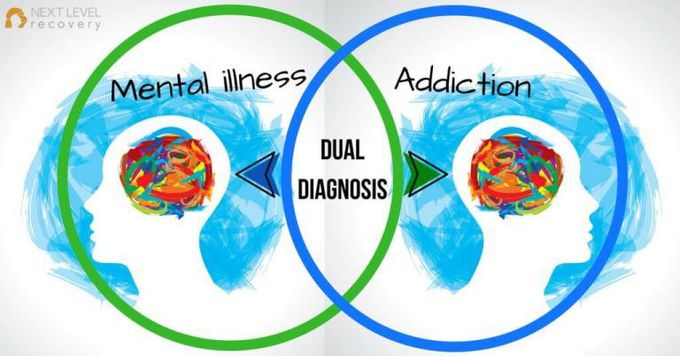


Dual Diagnosis Treatment for Co-Occurring Disorders in Salt Lake City, Utah
What is Dual Diagnosis? Have you ever asked yourself what is dual diagnosis? Dual diagnosis refers to a condition where an individual experiences one or more mental illnesses in combination with an addiction to drugs or alcohol. Most individuals with dual diagnosis turn to self medicating, where they use drugs or alcohol in an attempt to deal with depression, anxiety and any other emotions that are painful for them to handle. However, this may lead to drug or alcohol addiction that will later require affected individuals to visit the nearest dual diagnosis treatment center for treatment. At Next Level Recovery we understand how challenging it is to suffer from mental illness and addiction. Our professionals are passionate about helping you or your loved one finally calm the storm, and live a full and happy life, sober. Contact our SLC, Utah substance abuse recovery center at 801-719-5306 to get the help you deserve. Effects of Co-Occurring Disorders Although dual diagnosis can affect any member of the society, research shows that men are most likely to suffer from these disorders compared to women. This condition is also common among individuals who have medical issues, socioeconomic status, jailed and prison inmates and veterans of the army. Those who are left untreated and do not understand what dual diagnosis definition means can be lonely, homeless, alienated from the community, their family, and friends. Victims are also left to face possible jail time, divorce, loss of employment, loss of child custody, drug overdoses and even untimely death on their own. The effects of dual diagnosis on individuals and the society at large can be dire. Providing separate mental health care and other additional services may be costly to the community. Expenses even rise higher when victims go through criminal justice and healthcare systems again and again since a lot of money is required to foot the medical bills. Signs and Symptoms of Co-Occurring Disorders Symptoms vary widely among those who are affected, but common signs include withdrawal from friends, family, and other social groups such as organizations, clubs, community activities, inability to obtain and keep gainful job employment and most commonly involvement in risky activities and behaviors such as driving under the influence of alcohol. Other signs include schizophrenia where the victim develops a mental state that is constantly under hallucinations that are usually accompanied with or without delusional patterns of thought and disorganized speech as well as uncontrolled changes in normal body movement. Other possible symptoms under schizophrenia include an inability to experience pleasure, emotional flatness, problems with memory and attention. Another common symptom is bipolar disorderwhere affected individuals experience relatively bouts of an unusually excitable state which is commonly referred to as mania. Some victims may develop longer bouts or major depressions. Mania symptoms include reduced sleep, jitteriness, increased talkativeness, and an inflated sense of self and elation. Depression symptoms can include a change in appetite, down mood, changing sleep patterns, feelings of sadness with or without worthlessness and suicidal thoughts. Dual Diagnosis Treatment Co-occurring disorders treatment provides patients with well-organized plans that are designed to address their mental health and addiction problems. Initially, mental illness and drug abuse were treated separately, and all treatment programs were generally under one-size-fits-all approaches that did not take into consideration individual personalities, weaknesses and strengths of patients. Mental health experts of the past also believed that it was necessary to treat drug addiction disorders before moving on to psychiatric illnesses. However, modern-day treatment options are more effective and quick. The modern methods of treatment of dual diagnosis include: Individual therapyBelief restructuringDetox servicesDrug and alcohol addiction treatmentHormone level testingArt and music therapyTraditional cognitive behavioral therapyMedication management

